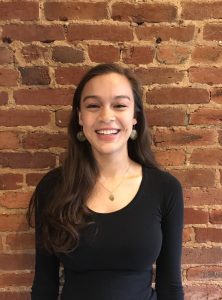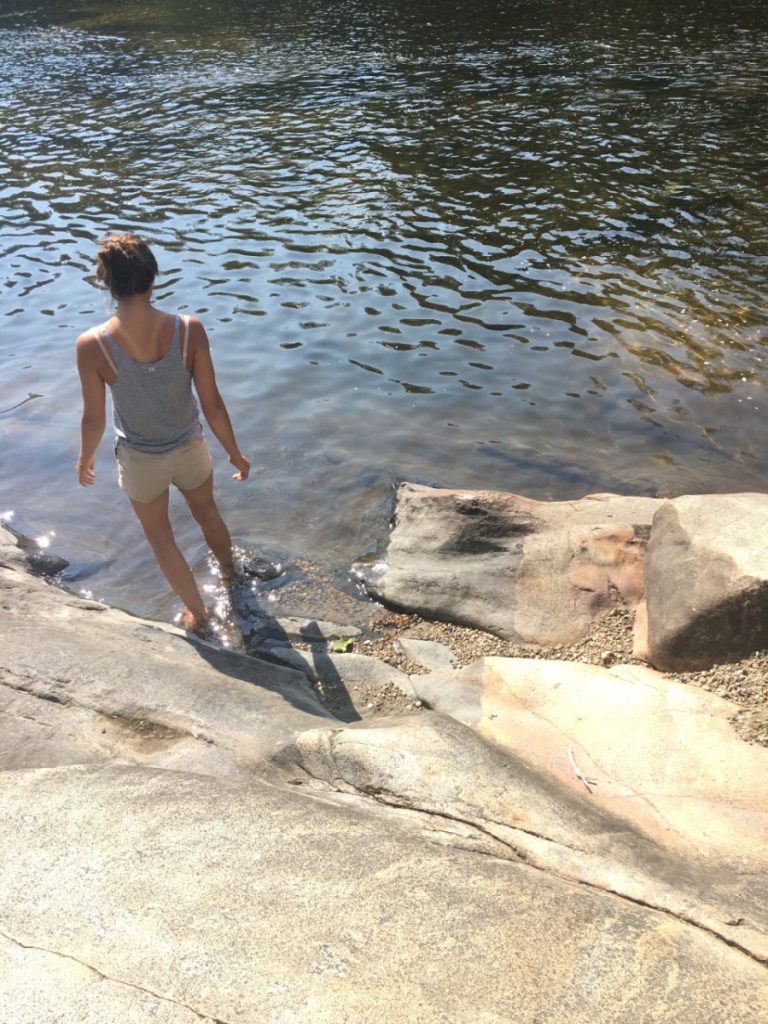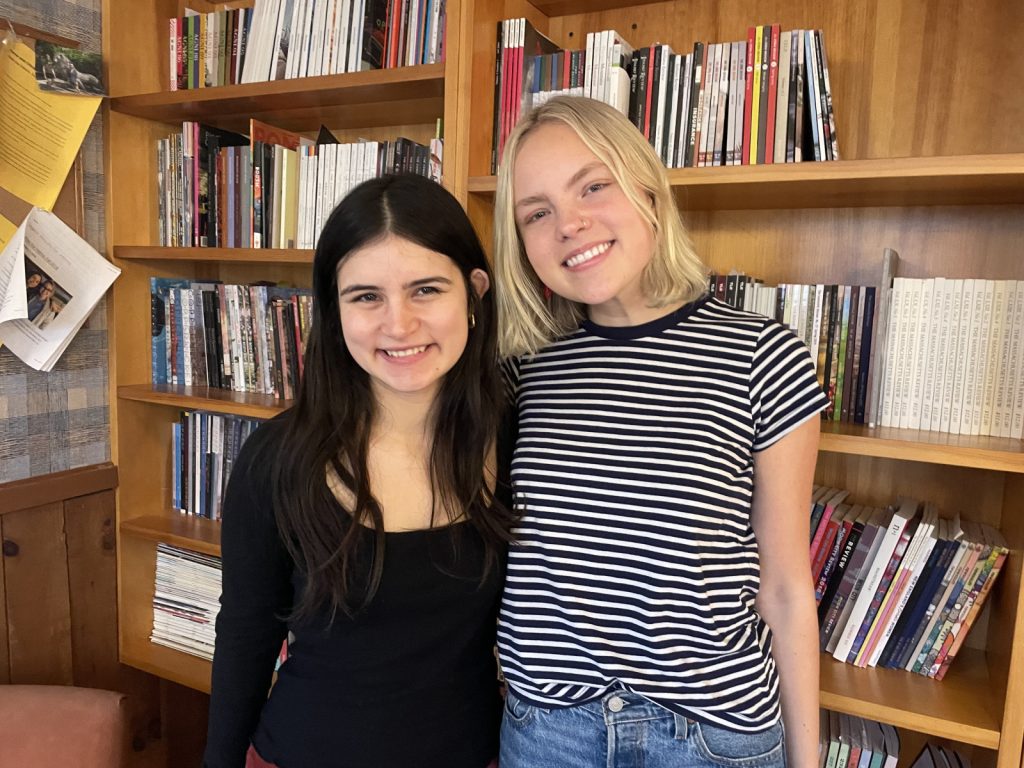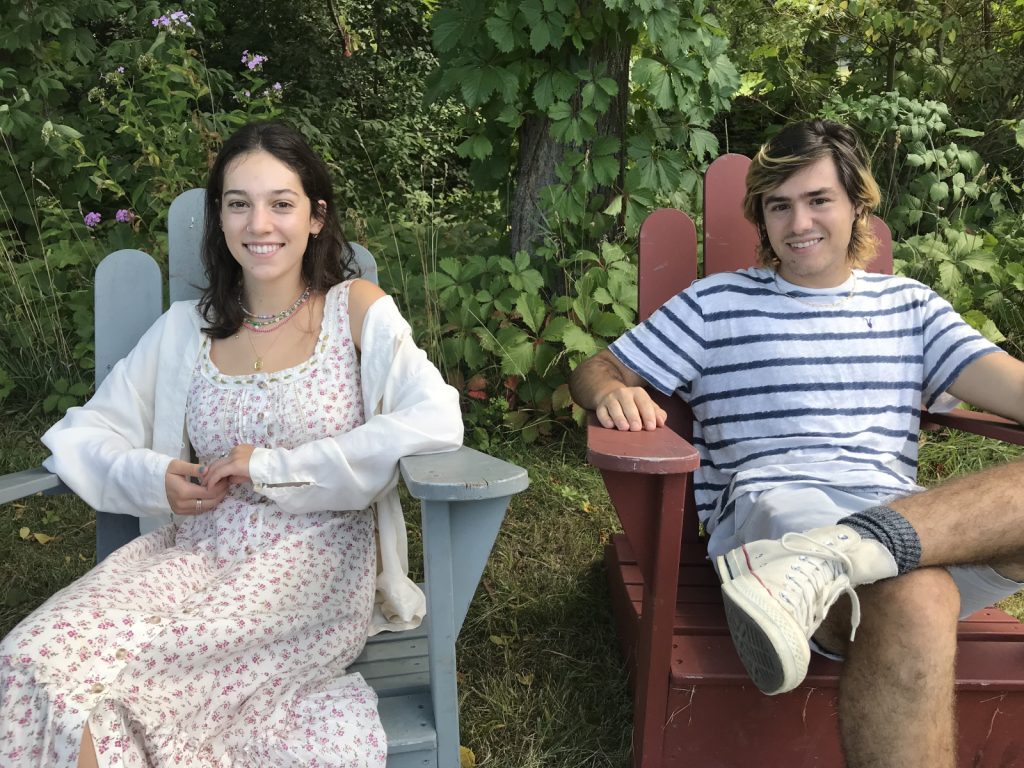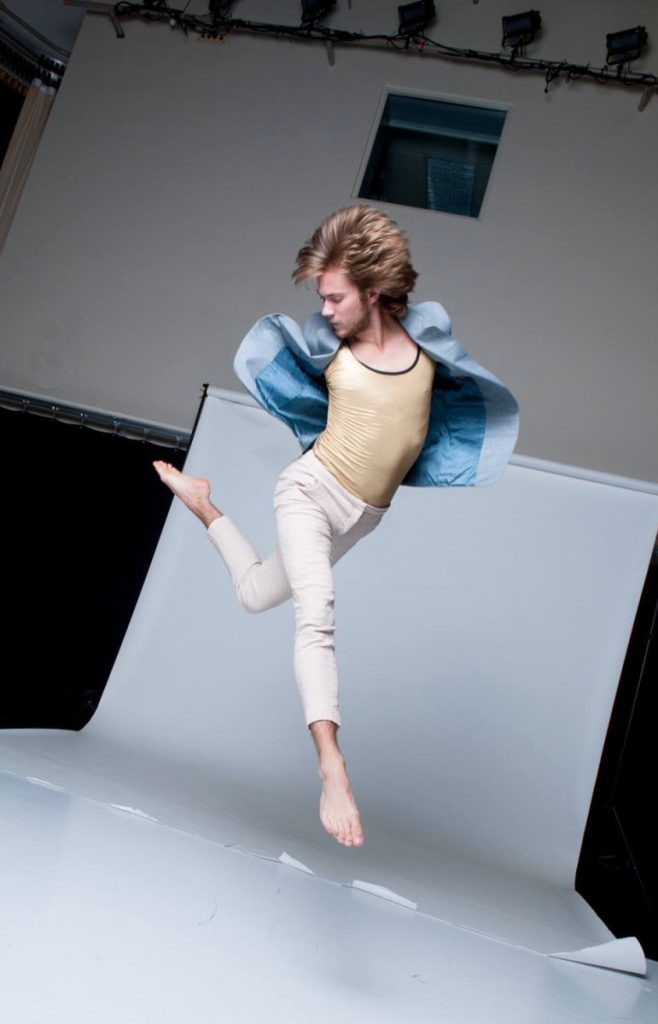
Doug during his time at Middlebury where he majored in Dance and English and
American Literatures. Photo by Alan Kimara Dixon.
Editorial intern Olivia Q. Pintair ’22.5 talks to Doug LeCours ’15—former NER intern and current writer, dancer, and choreographer—about creative inspiration, time, and embodiment through dance and fiction writing.
Olivia Q. Pintair: Where are you now, geographically and artistically, and what were some of the steps you took after Middlebury to get there?
Doug LeCours: I live in Ann Arbor, Michigan where I’m in my second semester of an MFA in fiction at the Helen Zell Writers’ Program, working on a collection of stories and a novel. After Middlebury, I moved to New York City and worked for seven years as a contemporary dancer and choreographer. During that time, my writing took the form of performance text and monologues directly related to the dance work I was making, with a few forays into critical writing. When the pandemic hit and my dance work momentarily evaporated, I started writing fiction in earnest again and fell back in love with reading. In a way, I feel like I’m playing catch-up—both on the contemporary literature that I missed while in the thick of a dance career and also on some literary classics and lesser known works. It’s a pleasure to be reminded there will always be more to read.
OQP: As a dancer and a writer, what themes or questions is your work in conversation with?
DL: Improvisation, queerness, sex, memory, nostalgia, wealth, scammers, and art history.
OQP: Do you feel any overlap between your creative processes in dance and fiction writing? How do your experiences of these two mediums inform or stray from one another?
DL: In choreography and fiction, you’re dealing with time. It sounds so obvious, but it’s easy to forget, especially as a dancer inside of a performance where an hour can feel like three weeks or two seconds. Film is a bridge for me between dance and writing in looking at how filmmakers have chosen to deal with time. I’m always thinking about movies as I make dances, perform, or write.
I also think there’s something about having been a dancer—being a body in space, moving between highly specific states that often reach physical or emotional extremes—that has equipped me with an ability to really be with a character as they move through a story. A lot of the dance projects I was involved with were developed improvisationally, and although writing is a different medium, there’s that same sense of What can happen next? What moment can I shape that complicates / escalates / advances / undercuts what came before? I’m calling on a similar nimbleness to make confident choices and move forward compositionally.
OQP: Is there a creative project you’ve most enjoyed working on recently?
DL: Two dances come to mind: Julie Mayo’s Nerve Show and John Jasperse’s Visitation. Both required me to access performative qualities I wasn’t aware I possessed, and I’m deeply proud of both projects.
I had an experience writing a story this past fall where the story just came—less plugging and chugging, more of a rushing forth. I hadn’t had that experience in a while, and it was a pleasure to be able to follow the piece as it emerged from beginning to end.
OQP: Who inspires you creatively?
DL: The many teachers I’ve had the pleasure of studying with at Middlebury and beyond, and the choreographers and directors with whom I’ve worked.
So many artists and writers: Rachel Cusk, David Lynch, Miranda July, Michael Haneke, Mary Gaitskill, Patricia Highsmith, Fleur Jaeggy, James Baldwin, Sarah Michelson, John Cheever, Tere O’Connor.
OQP: What are some things you learned as an undergraduate that most benefit you today in your professional and creative work?
DL: In both my studies of dance and creative writing at Middlebury, I was treated like an artist. I was taught early on that I didn’t have to wait for anyone’s permission to make something; as long as I was interested in it, it mattered.
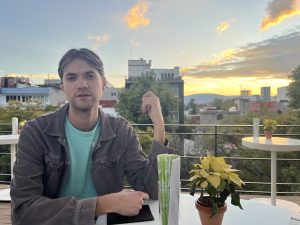
I also learned how to have a job and juggle scholarship and art-making. I worked all four years at the Box Office—and of course at NER, gaining some early insight into the literary landscape I’m entering again. These skills helped me to dive into the complicated Tetris game of dancing, writing, and paying for a life while living in New York.
OQP: Any book or music recommendations?
DL: Mary Gaitskill’s Veronica and all of her short stories. Rachel Cusk’s Outline trilogy. Leonard Michaels’ Sylvia. Alice Coltrane. Beethoven’s Symphony No. 1. Fleetwood Mac’s Tusk (a perfect album). William Basinski’s Disintegration Loops—great writing music.
Last year I was directed toward a writer named Christopher Coe who died in 1994 during the AIDS crisis. He was a student of Gordon Lish, and wrote with the sentence level precision and gravitas I love and am working toward in my own writing. His two novels, I Look Divine and Such Times, are sharp and devastating. The brevity of his career is a major loss, but I’m glad we have these contributions.
